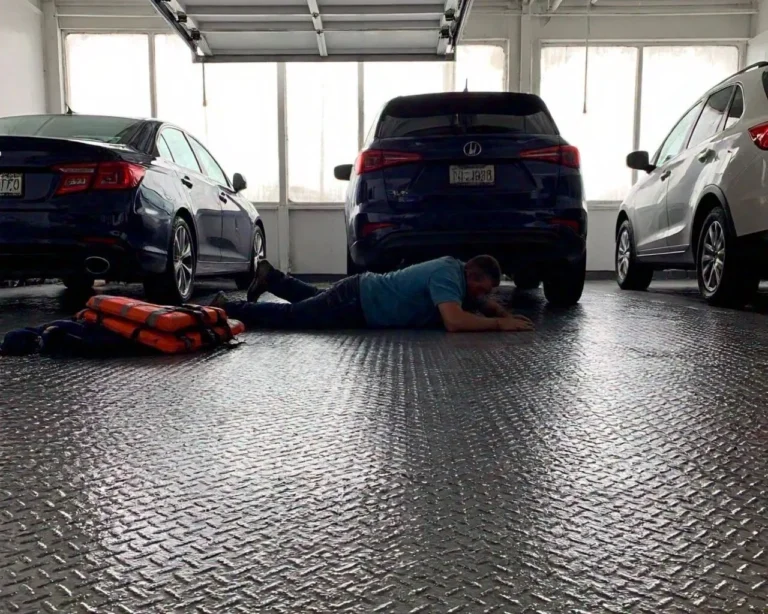Understanding Property Damage Claims in Car Accidents
In Las Vegas, property damage claims in car accidents involve seeking compensation for repairs or replacement of your vehicle and other damaged property. The process typically involves assessing the damage, filing a claim with your insurance or the at-fault driver’s insurer, and negotiating a fair settlement to cover costs. Talking to a lawyer specializing in car accidents can help during this time.
Dealing with the aftermath of a car crash can be quite overwhelming. This is especially true when it comes to handling property damage claims to fix or replace damaged vehicles and personal belongings affected in an incident. Understanding the details of property damage claims can help reduce stress and make the recovery process smoother.
Types of Property Damage
Accidents can damage different kinds of property, with vehicles often taking the brunt of the impact. Yet personal items like electronics and clothing stored inside the car can also be impacted. Being aware of the extent of the damage is crucial for documenting and submitting a sound claim.
Filing a Property Damage Claim
Submitting a claim for property damage entails a series of steps that must be followed carefully to ensure a smooth process. To begin with, meticulously record the damage by capturing photos or videos from different perspectives, as this serves as evidence. Then, proceed by reaching out to your insurance provider to report the incident. It’s important to note that many insurance companies have fixed timeframes for notification, so timely communication is key.
Determining Fault
Determining the party accountable for an accident is crucial in property damage claims. Insurance companies typically assign blame by reviewing evidence like police reports, witness accounts, and the extent of vehicle damage. In some instances, the liability may be shared between both parties, which can influence the claim procedure. Understanding the impact of fault in the claim is essential for ensuring compensation for the individuals involved.
Insurance Coverage and Limits
Insurance plans vary in the extent of coverage they offer for property damage situations. They differ in their coverage and limits for property damage. Instances of harm to another person’s belongings are typically covered by liability insurance, while collision or comprehensive coverage is essential for addressing and assessing personal vehicle damage. Individuals can review their insurance policies to gain a grasp of their protection level and any applicable deductible.
Appraisal and Estimates
Following the submission of a claim, insurance companies typically request an evaluation of the extent of the damage incurred. The evaluation typically involves determining the expenses of repairing or replacing the damaged items. Insurance companies may request that claimants go to designated repair shops or obtain estimates from sources. Gaining an understanding of this process can help guarantee that appropriate compensation is received for the damages suffered.
Negotiating with Insurers
Sometimes, insurance companies might not offer money to cover all the damage initially. That’s when negotiating is key. To improve your chances of getting money from the insurance company, you can show them proof, like repair quotes or expert advice to support your claim, for a higher payout. Being persistent and standing up for the right compensation amount can help make sure you get the compensation you deserve.
Understanding Depreciation
Depreciation could influence the assessment of a property damage claim since vehicles and personal items tend to decrease in value over time. Insurance providers might consider this factor during the compensation evaluation process. Understanding the impact of depreciation on claims enables individuals to adjust their expectations and make plans accordingly.
Legal Assistance and Disputes
Disputes may occur between individuals making claims and insurance firms regarding property damage claims. When faced with such scenarios, it can be advantageous to seek aid. A legal expert specializing in insurance claims can offer the right advice and support to guarantee that claimants are fairly compensated. Knowing when to turn to assistance helps to resolve disputes efficiently.
Keeping Detailed Records
Consistently updating records during the claim process is beneficial. Retaining copies of all communication estimates and receipts for repairs to monitor advancements and back up the claim is also helpful. Organizing documentation reduces the risk of overlooking any details and bolsters the strength of the claim.
Prevention and Future Planning
Accidents may happen unexpectedly at times. However, being proactive and taking precautions can lower the chances of mishaps occurring in the long run. Keeping up with vehicle maintenance and driving with care are ways to safeguard yourself and your belongings.
Conclusion
Having a grasp of property damage claims following car accidents is key to handling the aftermath situation and ensuring fair compensation for any damages incurred. Individuals who understand the process well can obtain this smoothly. With this understanding in hand, anyone can confidently address property damage claims with strength and determination, leading to a return to life.






